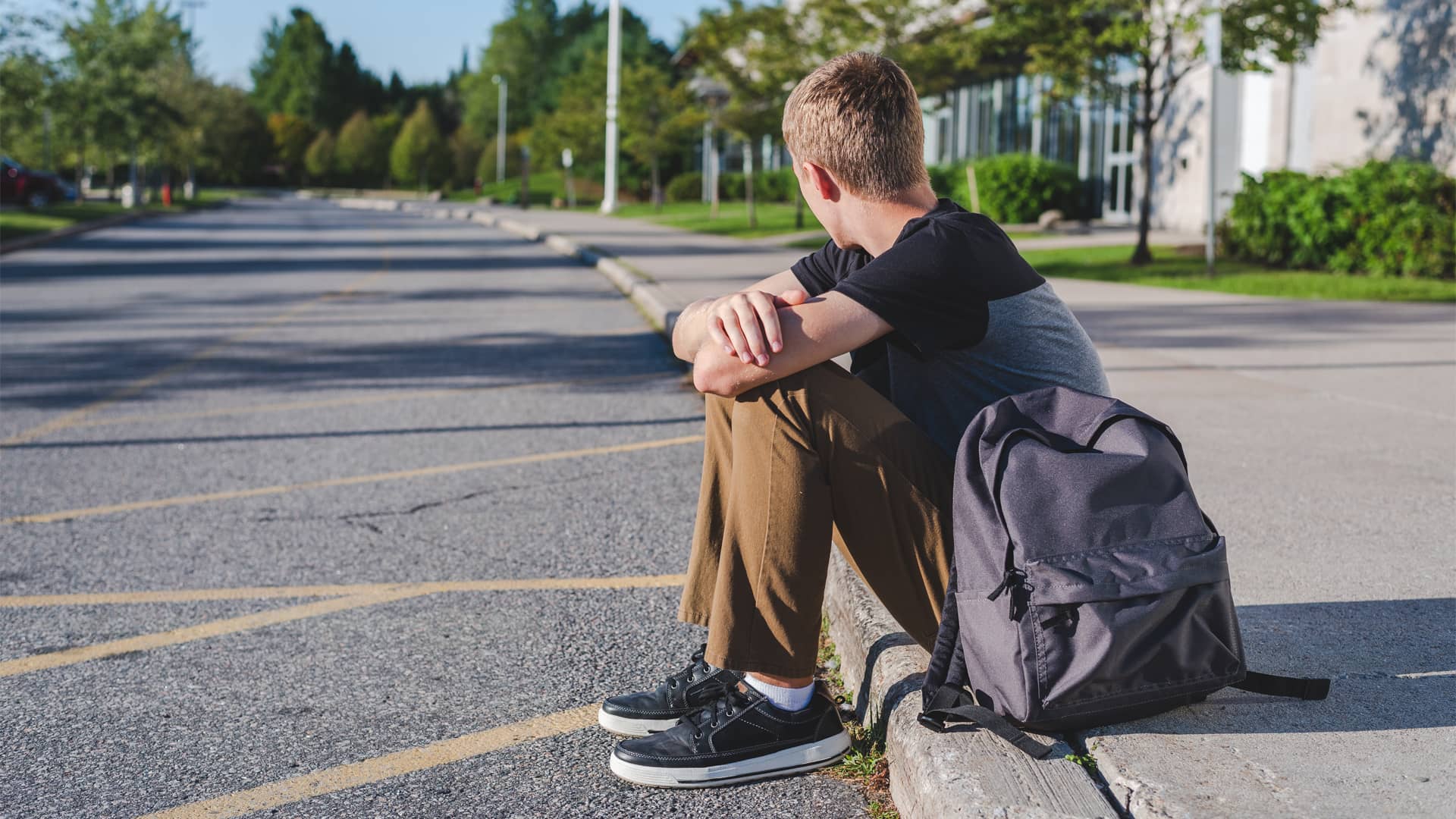Suicide Prevention

If you are currently experiencing a crisis and need someone to talk to immediately, please dial 988.
Our generation tends to keep things to themselves and not talk about what’s going on, especially when it comes to our mental health. When life gets overwhelming with new responsibilities and stress, we need to reach out to a trusted adult when something is bothering us or when we just want to talk about things. We feel pressured to go out with friends, be an active family member, and stay involved as a student. This can cause high levels of stress and anxiety and even lead to depression. The thing you need to remember is that you are not alone – 1 in 5 youth experience a mental health challenge. Don’t be afraid to reach out to a trusted adult — like a teacher, coach or parent. Find ways to connect with a trusted adult here!
Signs of Suicide
Warning signs are immediate risks and need to be addressed right away. Important signs that a young person may be considering suicide include:
Want to learn how to recognize the signs and symptoms of suicide and become a trusted adult for youth?
Signs of Suicide Prevention Program
The SOS Signs of Suicide Prevention Program (SOS) is a universal, school-based depression awareness and suicide prevention program designed for middle-school (ages 11–13) or high-school (ages 13–17) students. The goals are to 1) decrease suicide and suicide attempts by increasing student knowledge and adaptive attitudes about depression, 2) encourage personal help-seeking and/or help-seeking on behalf of a friend, 3) reduce the stigma of mental illness and acknowledge the importance of seeking help or treatment, 4) engage parents and school staff as partners in prevention through “gatekeeper” education, and 5) encourage schools to develop community-based partnerships to support student mental health.
The SOS curriculum includes lessons on raising awareness of depression and suicide, helping students identify the warning signs of depression in themselves and others, identifying risk factors associated with depression and suicidal ideation, and using a brief screening for depression and/or suicidal behavior. Students are taught to seek help using the ACT (Acknowledge, Care, Tell) technique. This technique teaches students to acknowledge when there are signs of a problem in themselves or a peer, show that you care and are concerned about getting help, and tell a trusted adult. Upon completion of the program, students are given response cards to indicate if they would like to speak to a trusted adult about themselves or a friend.
Where to Reach Out
Talk to a Counselor
Burrell Behavioral Health
Counseling services that help youth and their family work on the issues that are leading to a stressful home life.
Preferred Family Healthcare
Providing substance use treatment services for men and women.
Hand in Hand Multicultural Center
Provides programs to empower individuals, ethnic and minority families, disadvantaged, and at-risk populations to become healthier.
Lost and Found Grief Center
Grief support services for ages 3-18.
Boys and Girls Club
Focuses on building leadership skills and self- esteem, offering supervised recreational and athletic activities, learning centers, substance abuse prevention programs, career counseling and more.
The Victim Center
Offers aid, crisis support, and counseling to survivors of violent and sexual crime.
Rare Breed Youth Outreach Center
Drop-in center and transitional living for youth ages 16-21 years.
Self-Help Activities
- Faith-based Activities
- Yoga
- Meditation
- Exercise
- Drawing
- Painting
- Music
- Journaling
- Breathing Techniques
Other Places for Help
NAMI
Provides over 30 support groups for various mental health issues for individuals with mental illness, their family and friends. The Warm Line is a dedicated peer support phone line for people with mental illness and is open 7 days a week.
GLO Community Center
Provides support to the gay, lesbian, bisexual, and transgender (GLBT) community in the greater Springfield region through community activities and education.
YMCA
Provides compressive health, fitness, aquatics, youth, sports, camping and educational programs for all.
Narcotics Anonymous
Support for recovering drug addicts who meet to help each other stay clean.